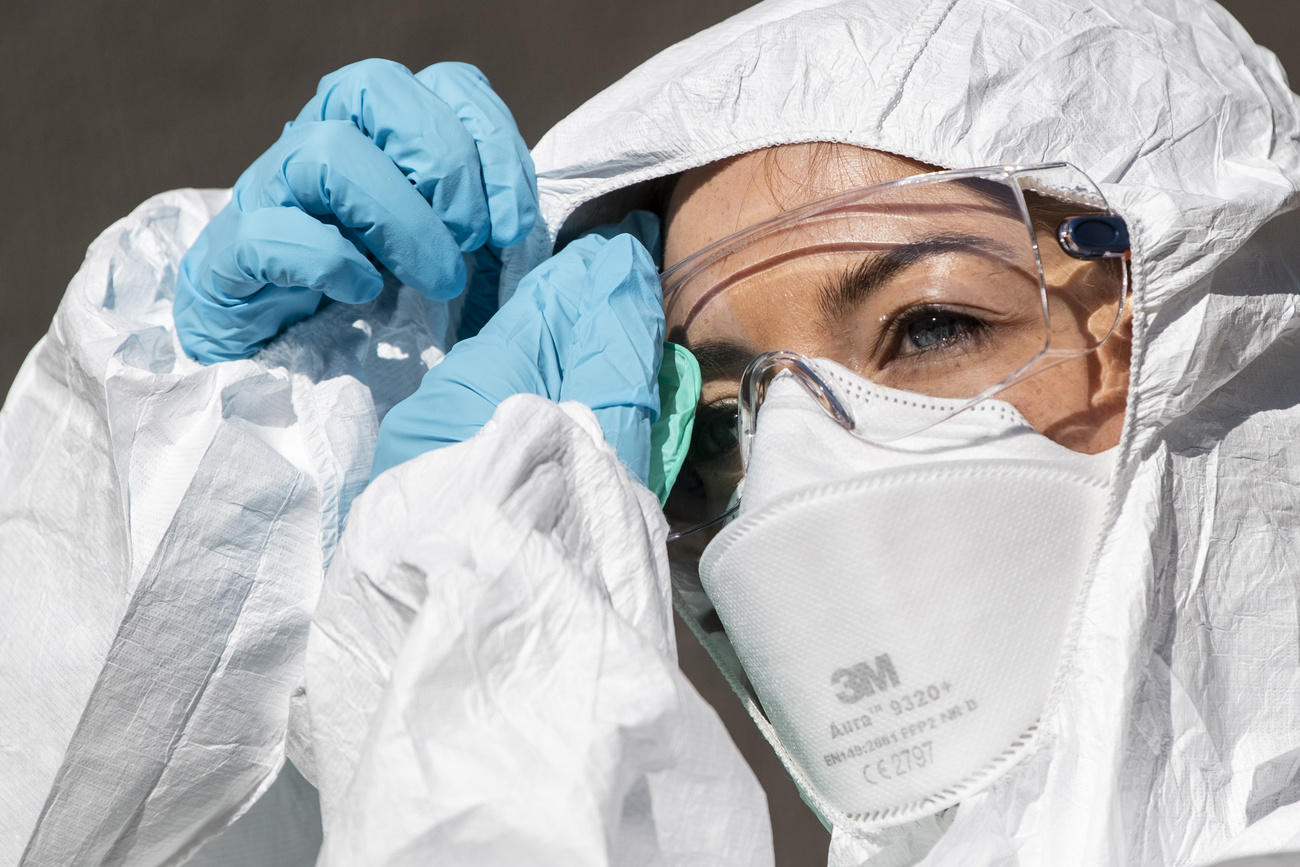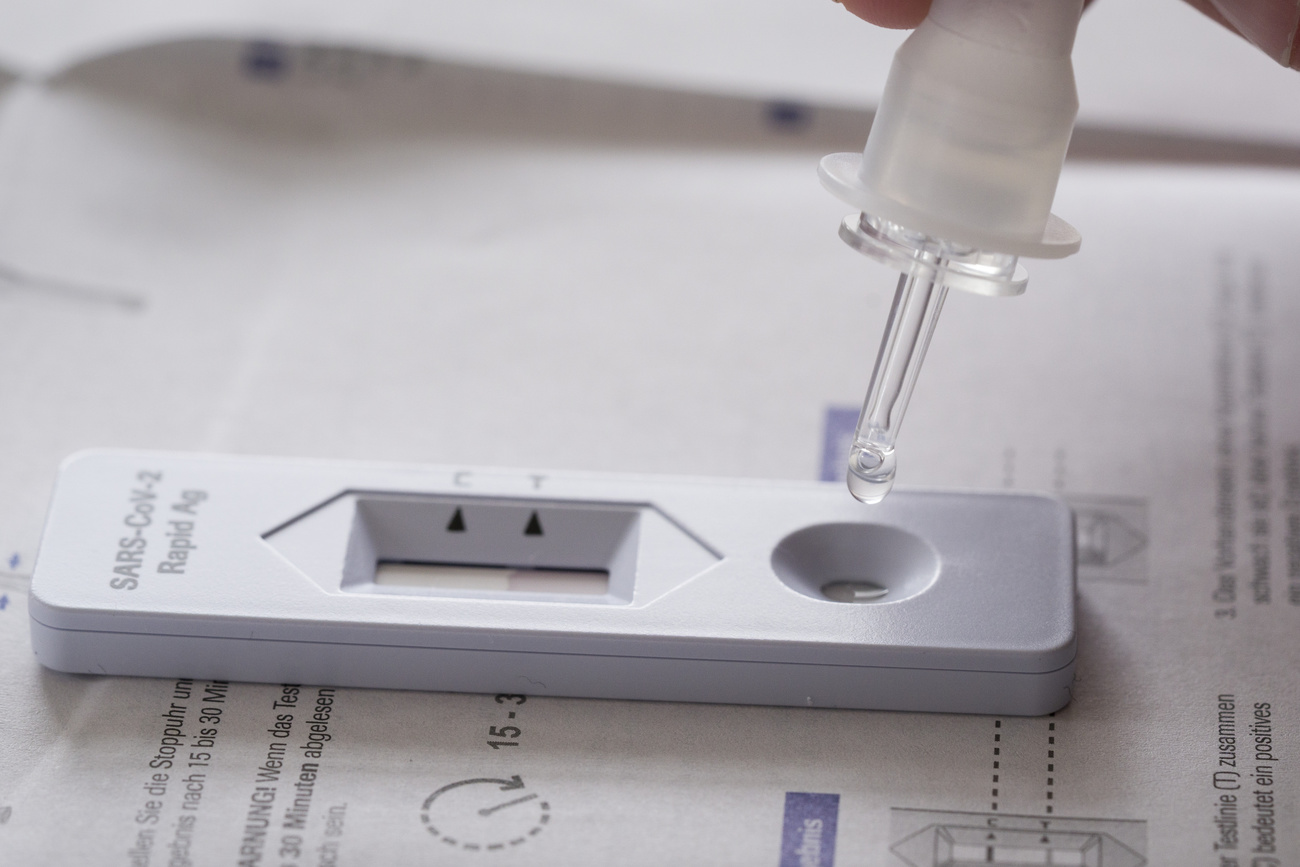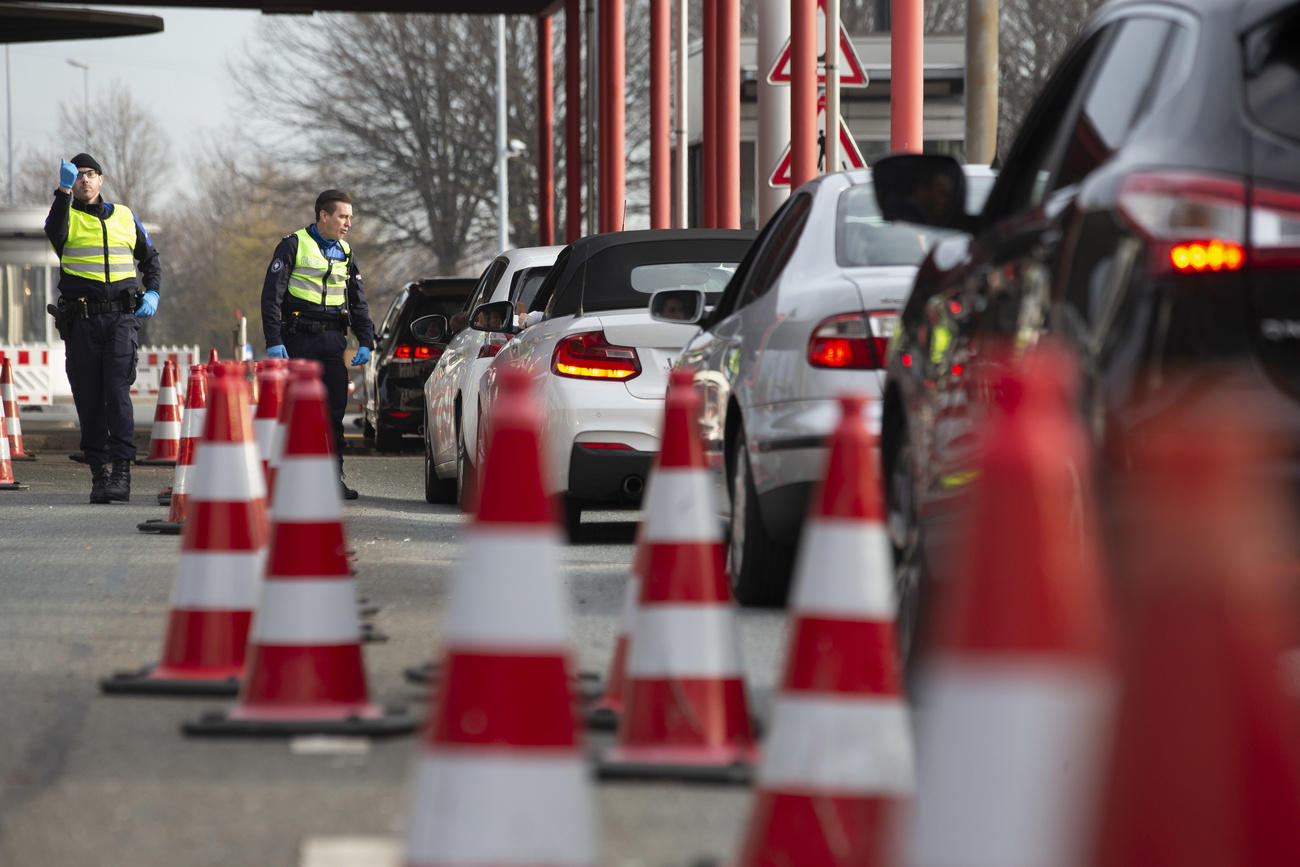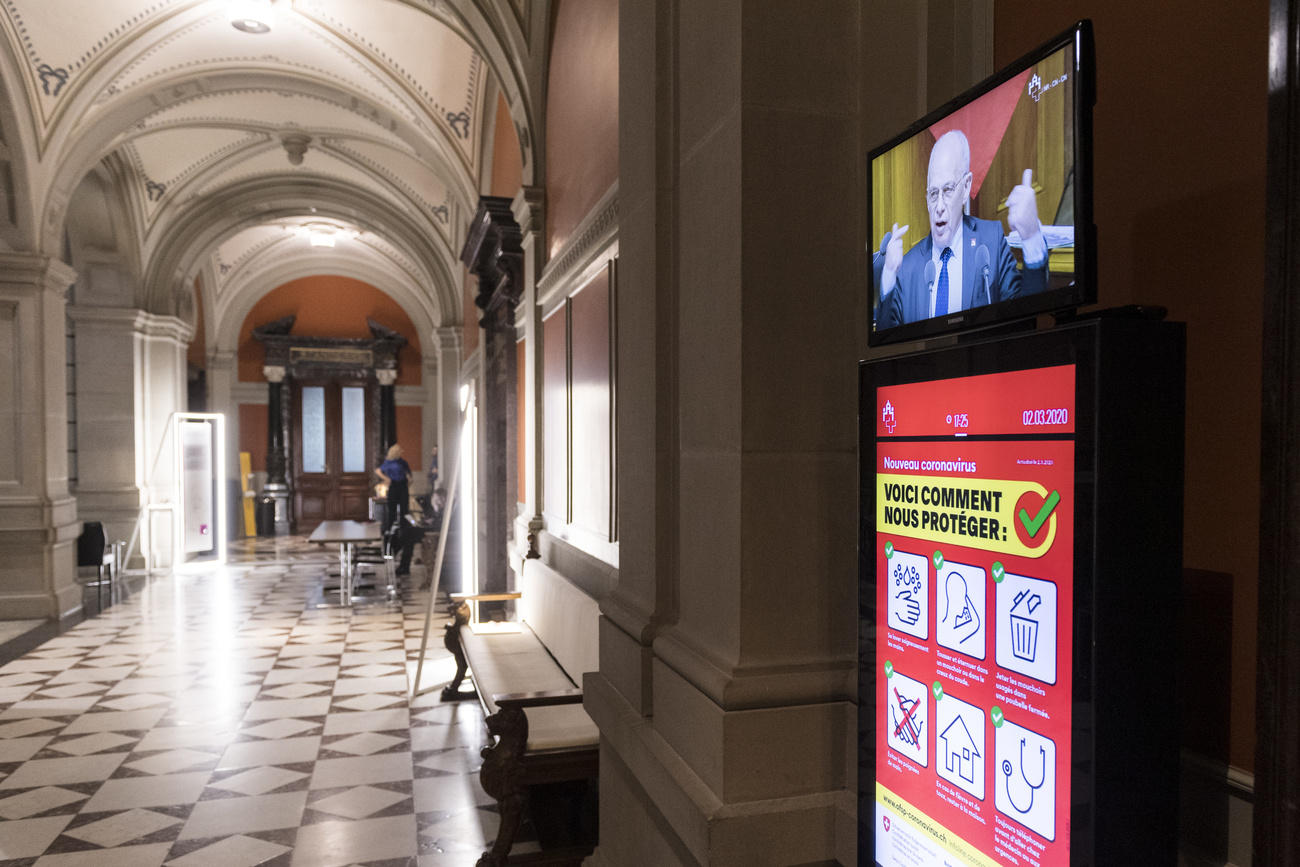What might coronavirus triage look like in Switzerland?

In Italy, hospitals are so overcrowded that medical staff must decide - as in wartime - who will be taken care of and who will not. If this happens in Switzerland, on what criteria will the doctors decide?
In the coronavirus crisis, should young patients be given priority over older ones? Will artificial respirators be reserved primarily for parents of young children? Should a 90-year-old patient be denied intensive care because of their age?
In Italy, doctors who are on the front line in the fight against the virus are faced with such questions. There is only one artificial respirator for every four patients with breathing difficulties. This means that some patients must be ruled out and provided only with palliative care.

More
Coronavirus: the situation in Switzerland
The Swiss Academy of Medical Sciences (SAMSExternal link) estimates that, due to the speed at which the virus is spreading in Switzerland, “bottlenecks could form in intensive care units” here too.
According to a Reuters reportExternal link, Switzerland does not currently have enough beds, artificial respirators or nursing staff to cope with the expected number of Covid-19 patients. So sooner or later Swiss doctors may be faced with these kinds of highly sensitive decisions.
Surviving the disease
On its websiteExternal link, the SAMS makes available its medical-ethical guidelines for “intensive care interventions”, which date from 2013 but which it says are still valid and can help doctors decide.
The guidelines say that “if in a large-scale emergency, such as a pandemic, it is no longer possible to provide intensive care for all patients, it must be ensured that triage is conducted according to ethical principles. The criteria applied must be objectively justified and transparent”. These criteria are to be “applied without discrimination (e.g. on the grounds of age, sex, canton of residence, nationality, religious affiliation, social and insurance status or existing chronic disability) in an equitable procedure”.
As a matter of principle, “highest priority is to be accorded to patients whose prognosis is good with, but poor without, ICU treatment”. And in this case, “the decisive factors for prognostic assessment in this context are the probability of short-term survival of ICU treatment […], but not medium- or longer-term life expectancy”.
This means that for Covid-19 patients, a patient’s chance of surviving the disease will be taken into account rather than general life expectancy after the epidemic has passed.

In compliance with the JTI standards
More: SWI swissinfo.ch certified by the Journalism Trust Initiative



You can find an overview of ongoing debates with our journalists here . Please join us!
If you want to start a conversation about a topic raised in this article or want to report factual errors, email us at english@swissinfo.ch.